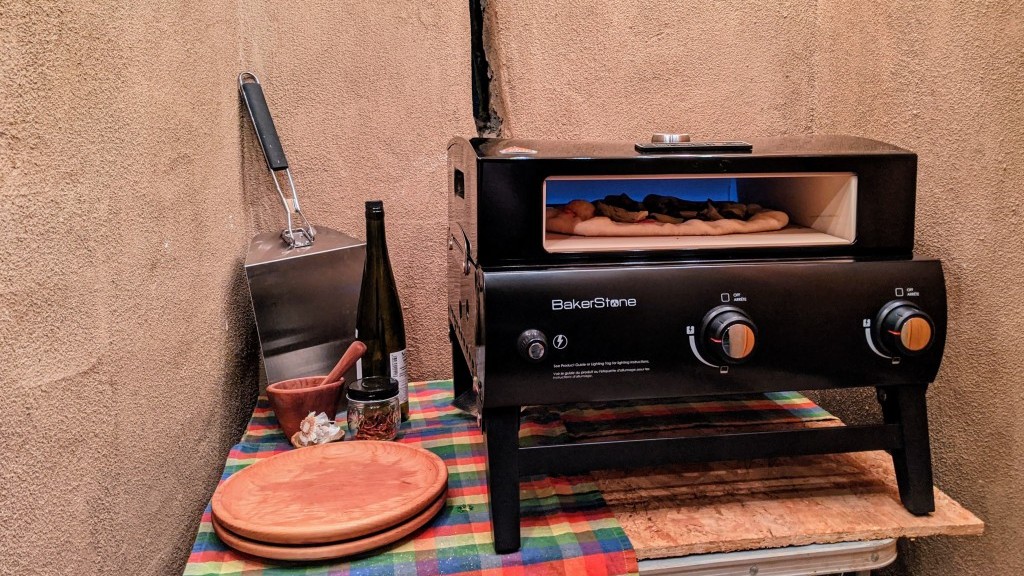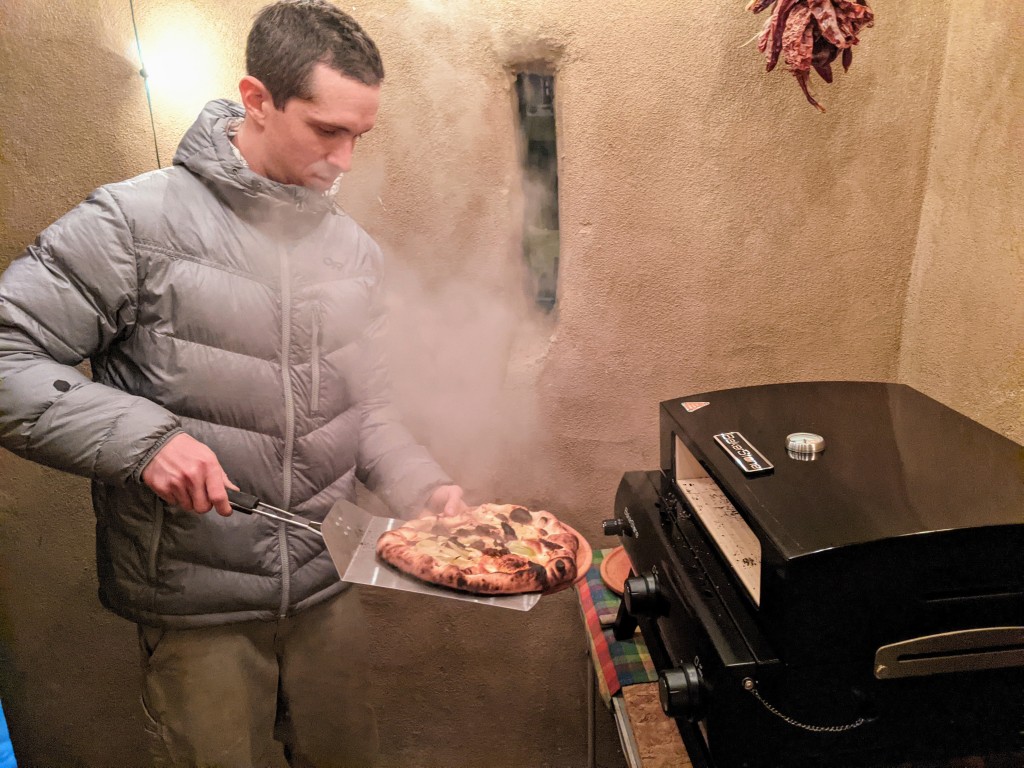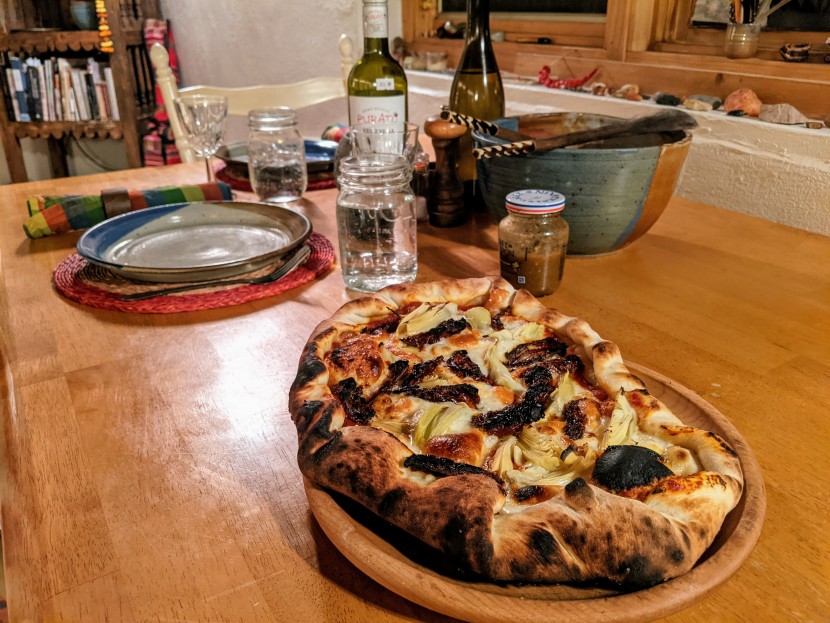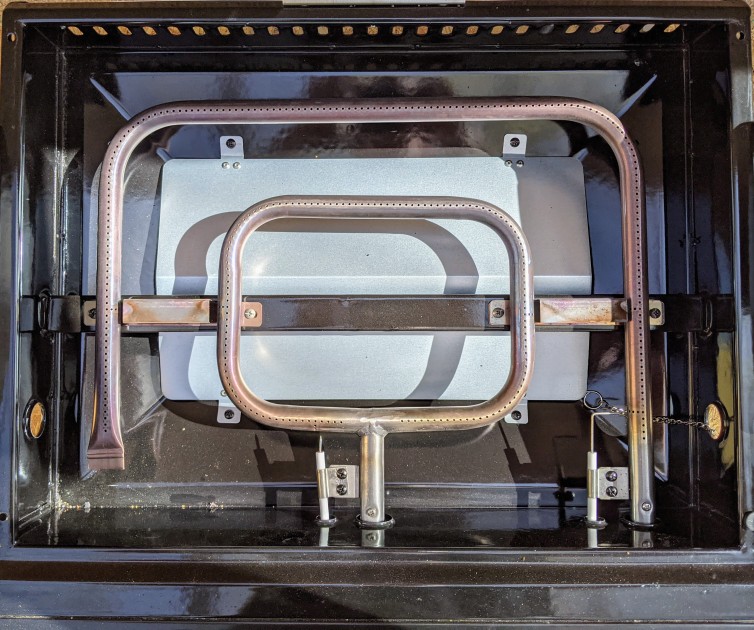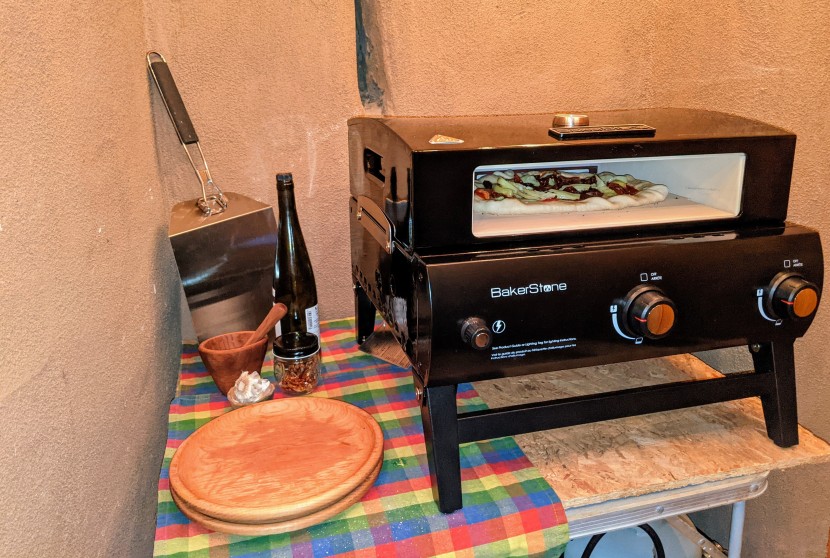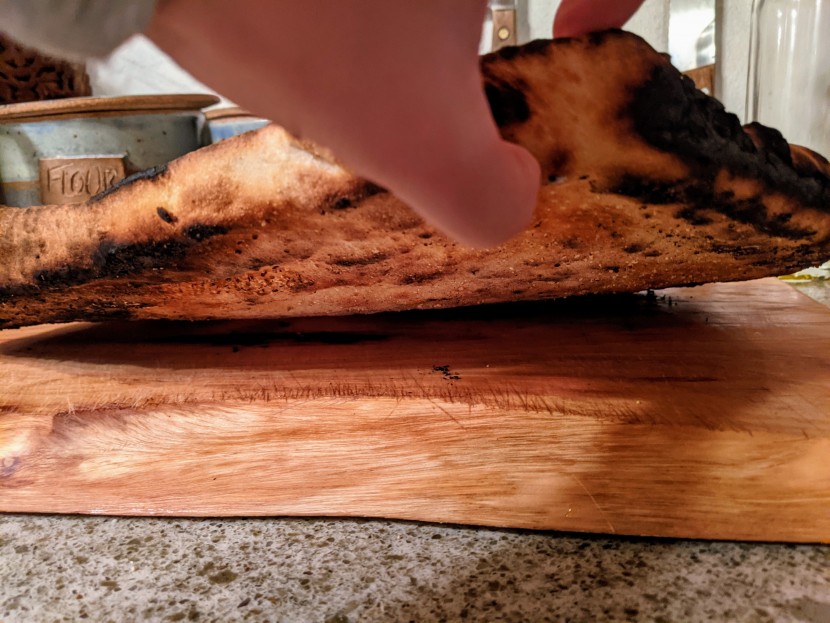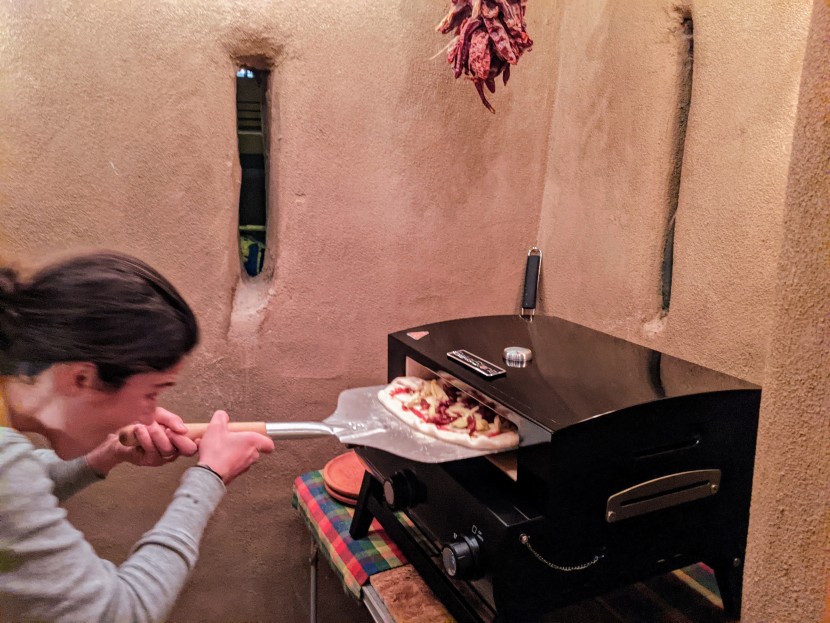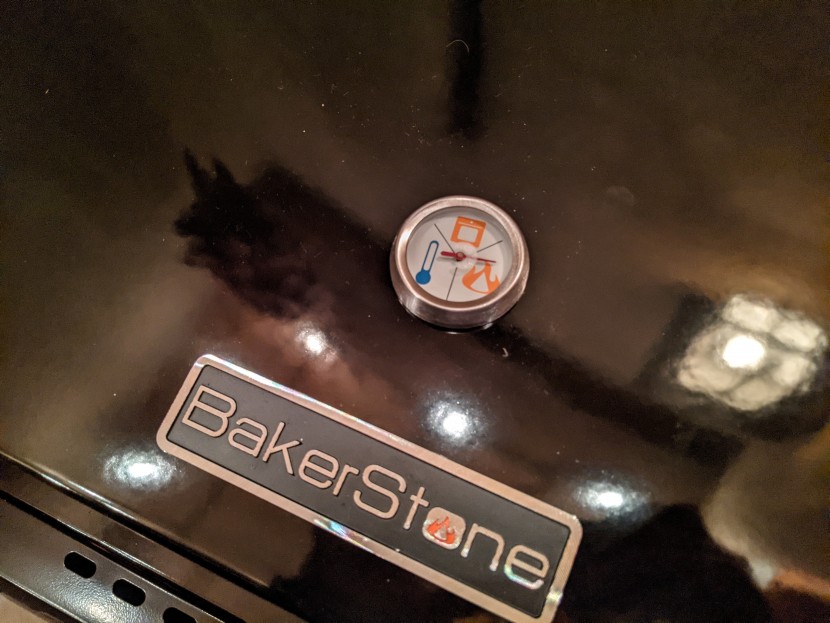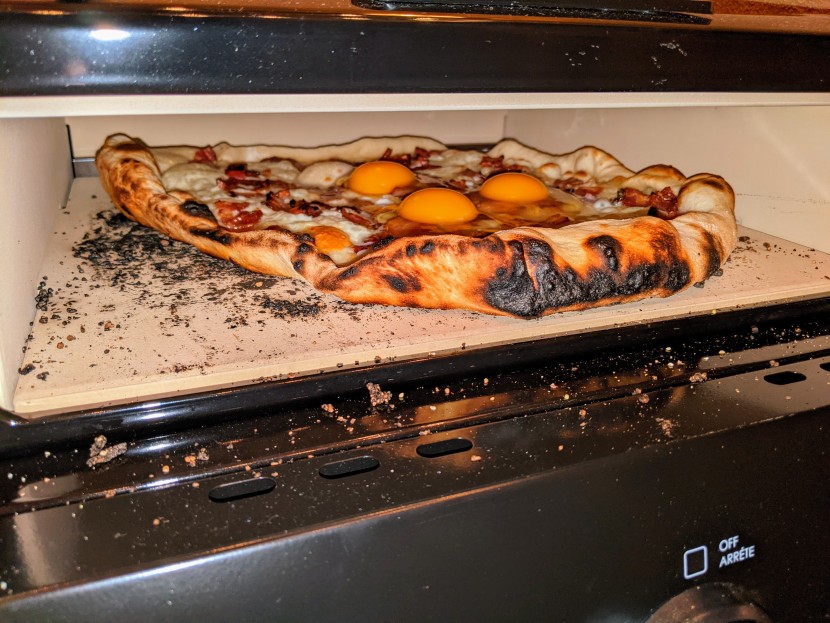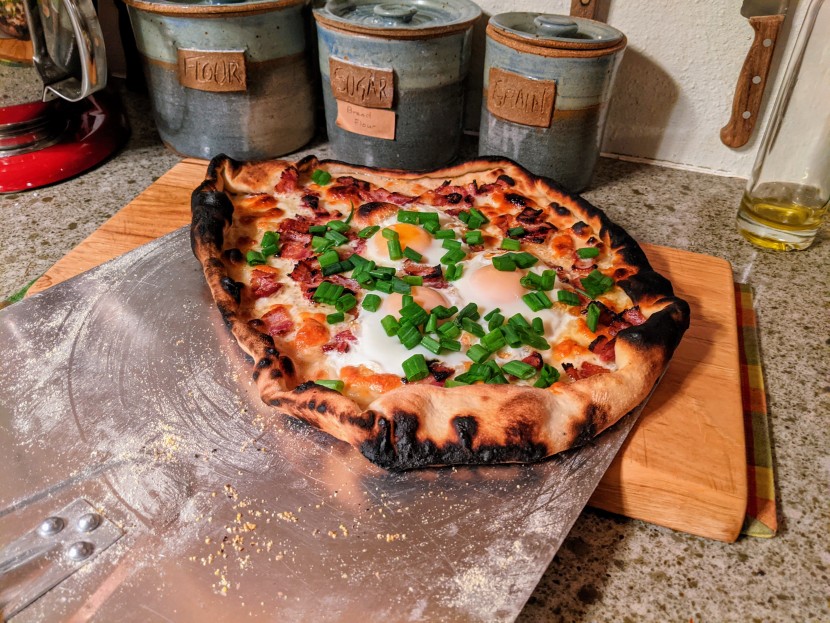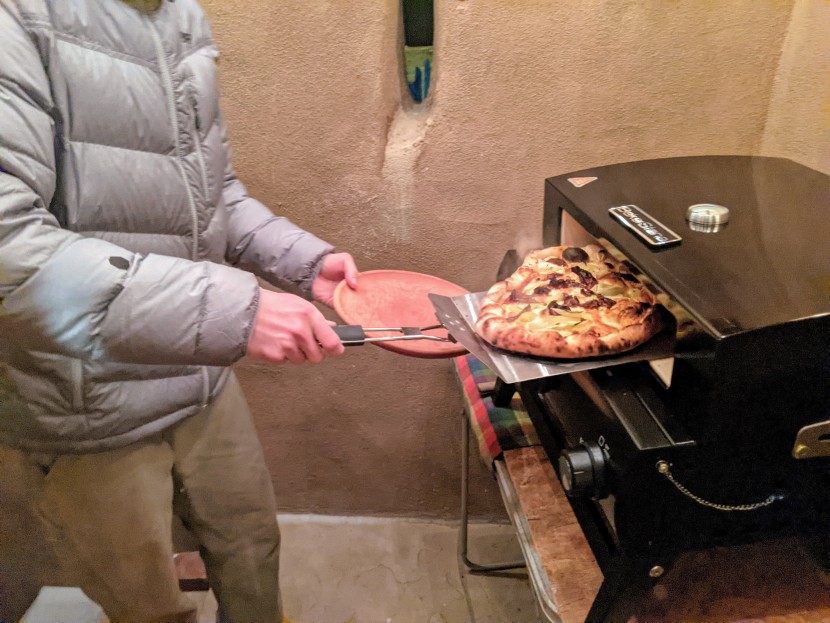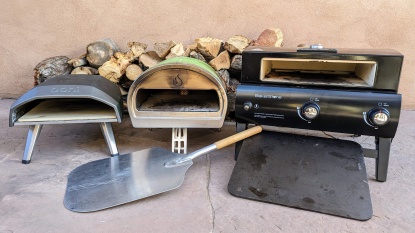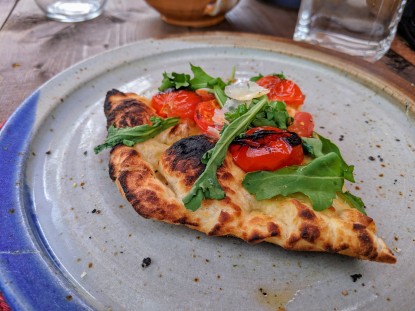Our Verdict
Compare to Similar Products
 This Product BakerStone Original | |||||
|---|---|---|---|---|---|
| Awards | Best Bang for Your Buck | Best for Portability | Best Overall Value | ||
| Price | $320 List | $350 List $349.99 at Amazon | $399 List | $130 List $129.95 at Amazon | $130 List $129.00 at Amazon |
Overall Score  |
|||||
| Star Rating | |||||
| Bottom Line | This price point pizza oven performs well above its weight class in terms of power and performance | A well-designed oven capable of producing beautiful pizzas, whose main detractor is an expensive price tag | Popular for more than a few good reasons, this oven stands up to the hype | An affordable, but impressive indoor option for those not interested in investing in a new appliance | This steel is perfectly suited to create NY-style pizzas, just don't expect it to produce a Neapolitan-style pie in your oven |
| Rating Categories | BakerStone Original | Solo Stove Pi | Ooni Koda 12 | NerdChef 3/8" Steel... | The Original Baking... |
| Cooking Performance (30%) | |||||
| Output Power (30%) | |||||
| Control (25%) | |||||
| Ease of Use (15%) | |||||
| Specifications | BakerStone Original | Solo Stove Pi | Ooni Koda 12 | NerdChef 3/8" Steel... | The Original Baking... |
| Fuel Type | Gas | Propane | Gas | N/A | N/A |
| Maximum Pizza Diameter | 13" | 12" | 12" | 14" | 14" |
| Average Pizza Cook Times | 4 min | 2.6 min | 2.8 min | 3.1 min | 5.6 min |
| Average Stone Temperature | 732 °F | 776 °F | 733 °F | 686 °F | 479 °F |
| Average Oven Temperature | 780 °F | 800 °F | 778 °F | 637 °F | 497 °F |
| Size of Firebox | N/A | 128 cu. in. | N/A | N/A | N/A |
| Power Output | 25,000 BTU | 15,000 BTU | 13,648 BTU | N/A | N/A |
| Footprint | 345 sq. in. | 637 sq. in. | 368 sq. in. | 228 sq. in. | 228 sq. in. |
Our Analysis and Test Results
A company that made its name with the box oven that transforms an ordinary grill into a pizza oven, BakerStone improves on its original design with the Original Portable. This design, albeit bulky, splits the base unit and oven chamber for improved portability. Two powerful burners generate 25,000 BTUs to heat the oversized pizza box from below efficiently, churning out pizzas up to 13" quickly and with ease. The fact that the burner unit separates from the oven box allows for you to pivot from a pizza oven to an on-the-go grill or griddle setup for multi-functional outdoor cooking. And the oven box can even still be placed on a full-size gas or charcoal grill for ultimate versatility.
Cooking Performance
Though its general size may give away the following statement, the bulkier BakerStone oven takes much longer to preheat than other comparably powerful ovens. The dual burners are more than capable of boosting internal oven temperatures above 800°F, but it will take more like 30 minutes instead of the manufacturer-recommended preheat time of 15-20 minutes.
However, once it is up to temperature, the firebox's even heat retention translates to this pizza oven's superior cooking performance. The kiln-like fire bricks that comprise the five sides of the oven chamber are well-designed to deliver both conductive and radiative heat, much like a traditional wood oven.
They also provide an excellent level of insulation, which all but eliminates any required reheat time in between pizzas, allowing you to turn out rounds of pies with ease. To the benefit of novice pizza makers, the BakerStone can deliver temperatures analogous to a Neapolitan-style pizza oven without the need to turn around pizzas in less than 90 seconds.
Even at an average pizza stone temperature of 732°F, average bake times are a bit longer than is typical. Taking three to four minutes to go from raw to ready-to-cut, this forgiving period offers new users ample margins to both make and learn from their mistakes without ruining pizzas in the process.
Output Power
We discussed the ability of the oven housing to deliver conductive heat to cook the bottom crust and radiative heat to the upper crust, but that is only two-thirds of the total equation. The open-front means that there are only five sides to the firebox. What isn't immediately evident is that there is a gap between the pizza stone itself and the back wall.
Through this gap, the back burner pumps convective heat to both drive airflow and maintain a consistent internal temperature averaging an impressive 780°F. The position and design of the powerful burners play a significant role in the remarkable heat output of the BakerStone oven.
As mentioned above, the outer U-shaped burner drives the convective heat transfer through an opening in the back — a design concept that draws heavily on the heat transfer of a wood-fired oven: from the back, over the pizza, and out the open front. But since the firebox is inset from the exterior walls, a surrounding air gap is also heated by this same burner. The conductive heat is supported by a second burner located directly underneath the pizza stone.
Thanks to the combination of insulation and design, no other oven operates quite as efficiently as the BakerStone, as evidenced by the lack of reheat time required between pizzas. It is uncommon for the pizza stone to fire at a lower temperature than the internal air temperature of the oven, especially in an oven with an open front. But this works to a huge benefit of the pizza maker, who can achieve a more blackened crust akin to a New Haven-style pizza without overcooking fresh toppings.
Control
The BakerStone was an immediate favorite of our testers from the first firing, thanks to the oven's control and consistency. This oven stands apart from the majority due to the simple fact that two separate burners power it. One lollipop burner covers the center of the pizza stone, and an oversized U-shaped burner extends the length of the sides and back. Each has its own knob for adjustment, which allows you to dial in the direction of the heat source if you experience any hot spots while baking.
However, you are unlikely to have this issue because the shape and design of the oven box create an incredibly stable environment when considering the average internal temperature. The mixed methods of heat transfer — convective, conductive, and radiative — come together nicely to evenly and equitably heat the five sides of the oven chamber. We used an infrared thermometer to gather an average internal temperature by measuring the temperature of each wall, and the BakerStone had one of the lowest standard deviations of any we tested, with an average difference of only 21°F.
Learning how to turn a pizza in the oven is a requisite skill. Still, the difference in temperature between the back and front of the BakerStone makes it even more essential to practice this technique to avoid overcooking one side of your lovingly prepared homemade dough. The position of the burner and the opening in the pizza box directly above the back of the oven brings that half of the pizza stone up past 800°F, while the open-air front tends to hover around 650°F.
Ease of Use
Although this oven chamber is no larger overall than other comparable pizza ovens, it may feel that you have more room to work with simply the difference in width. With a 15-inch wide front, the BakerStone is the only oven that even accepts a standard 14" pizza peel. As such, it can reasonably accommodate a 13" pizza, thanks to an inch-or-so advantage along either side of the square pizza stone. But this oversized oven chamber is heavy, tipping the scales at just under 50 pounds. Even though the firebox separates from the burner unit, this bulky oven is likely best left in the backyard. Regardless of design features like foldable legs to improve portability, it is still heavy. With this combination of pros and cons, the BakerStone still managed to earn an excellent score.
The oven chamber's full “firebox” design takes more setup than most ovens. You must build the fire bricks almost like a lego-form of kiln shelving. But for reasons already stated, the little bit of extra effort is well worth the additional performance. One downside of this particular design is that the permanently installed pizza stone requires a bit more scrubbing (with a soft brush) to get clean rather than simply flipping it over and allowing the mess to burn off.
In terms of accessibility, the forgiveness of a slightly slower cook rate combined with the overall ease of firing makes the BakerStone one of the most approachable options for novice cooks. While the reflective internal chambers of other stainless steel ovens can quickly lead to blackened crusts, one doesn't need to manage the output of these burners to avoid overcooking a pizza. That is, of course, not to say that these burners aren't powerful — it may be necessary to turn the burners down to manage the overall temperature of the oven. We simply mean that you won't have to fine-tune the burner level each time you launch a pizza into the oven.
Should You Buy the BakerStone Original?
Now, here's the kicker. The BakerStone offers all of this performance at a sticker price that is significantly lower than other gas-fired models in our best pizza oven review. As such, it is an easy choice as our Best Buy Award winner. Toss in the flexibility of removing the pizza oven to use the base burner unit as either a grill or griddle — or place the oven box on a full-size gas or charcoal grill to transform it into a pizza oven — and you have a multi-functional outdoor kitchen. Beginner pizza makers will appreciate the forgiving nature of this oven but will find that they can continue to use the BakerStone without the need to upgrade as their skills improve.
What Other Pizza Ovens Should You Consider?
Beyond its fantastic versatility, dynamic heat output, and nearly unparalleled insulation, the BakerStone Original is offered at an excellent price point that is hard to beat. However, the weight and bulk of this oven may be a deal-breaker for some, and if you are willing to spend a bit more, there are some options out there that are marginally better. A truly portable option, the Ooni Koda 12 is a good fit for those who prefer flexibility in their pizza-making locations rather than a stationary outdoor kitchen. If you'll be cooking indoors, the Breville Smart Oven Pizzaiolo is the easiest oven to use out of the models we tested and earned high marks in all other metrics as well — though it is wildly expensive. If you'd rather just use the oven you already have, take a look at a steel — our current top recommendation is the NerdChef 3/8" Steel Stone.


